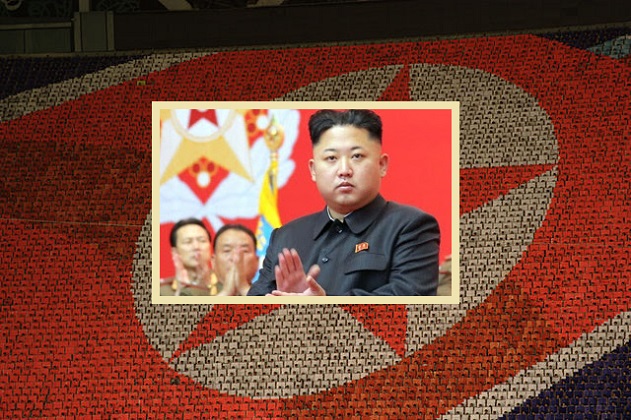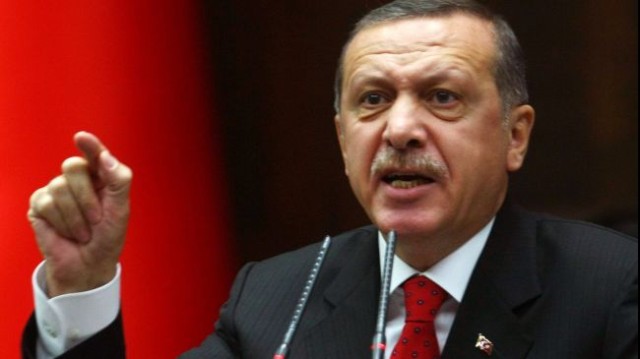Iran/ North Korean Nuclear & ICBM Development Precludes a P5+1 Agreement
Reuel Marc Gerecht, Senior Fellow of the Washington, DC-based Foundation for Defense of Democracies published a book review in Friday’s Wall Street Journal by former Pentagon official, Matthew Kroenig, A Time to Attack: The Looming Iranian Nuclear Threat. Matthew Kroenig is an Associate Professor and International Relations Field Chair in the Department of Government at Georgetown University. Kroenig, who served under former Secretary of Defense, Robert Gates, presents a thesis that the only way to stop the Islamic regime in Tehran from achieving nuclear hegemony is for the US, not Israel, to bomb several key facilities in Iran. The suggested targets are the centrifuge enrichment centers at Fordow and Natanz, the uranium conversion facility at Isfahan, and the plutonium producing heavy water reactor at Arak.
 Why? Because as Gerecht relates, the sanctions regime has not deterred Iran from investing over $100 billion in the project to achieve nuclear hegemony replete with the means of delivery. Further, as he points out in his review, the US has the means to seriously cripple those facilities with 30,000 pound bunker busting deep penetrating bombs. The hoped for Stuxnet malworm and other cyber warfare is past. Gerecht notes in his review, they have only “gummed up” the whirling centrifuges enriching weapons grade uranium. Neither does he believe that targeted assassination of Iranian nuclear scientists, allegedly by Mossad, has put a dent in Iran’s pursuit of a nuclear capability. Given that the current P5+1 discussions with Iran seeking to perfect a final agreement with a deadline of July 20th, Gerecht makes this prediction:
Why? Because as Gerecht relates, the sanctions regime has not deterred Iran from investing over $100 billion in the project to achieve nuclear hegemony replete with the means of delivery. Further, as he points out in his review, the US has the means to seriously cripple those facilities with 30,000 pound bunker busting deep penetrating bombs. The hoped for Stuxnet malworm and other cyber warfare is past. Gerecht notes in his review, they have only “gummed up” the whirling centrifuges enriching weapons grade uranium. Neither does he believe that targeted assassination of Iranian nuclear scientists, allegedly by Mossad, has put a dent in Iran’s pursuit of a nuclear capability. Given that the current P5+1 discussions with Iran seeking to perfect a final agreement with a deadline of July 20th, Gerecht makes this prediction:
Next month in Vienna, Iran and the P5+1 world powers will extend the interim agreement they struck six months ago on Iran’s nuclear program. Secretary of State John Kerry will hold a press conference, offering both sides solemn praise for finding common ground. All the while, through this tough compromise and historic collaboration, the Islamic Republic’s 9,000 spinning centrifuges will keep on enriching uranium; the other 10,000 installed centrifuges won’t be dismantled. Eventually these centrifuges, or thousands of new-and-improved ones, will be able to produce bomb-grade fuel.
Kroenig cautions:
Why would anyone believe that we would fight a nuclear war with Iran if we didn’t even have the stomach for a conventional war with a nonnuclear Iran?
Gericht’s conclusion from his review of Kroenig’s, A Time to Attack:
Mr. Kroenig readily admits that there will be costs for preventive military action. Tehran will likely respond with terrorism, directly or through proxies. But Mr. Kroenig contends that those costs are much lower than allowing Iran to go nuclear. Whether or not he’s right, we will soon find out.
Watch this May 12, 2014 C-SPAN Book TV discussion with Prof. Kroenig about A Time to Attack.
Problem is that the Obama Administration failed to foster regime change in Iran in the fraudulent elections of June 2009. Israel and many others concerned over Iran’s rising hegemony in the Middle East believe that America doesn’t have the will and the unity to undertake what Kroenig suggests. Just look at the President latest tracking poll numbers; less than 37% of American thinks that he is pursuing foreign policies protecting our nation’s interests.
Claudia Rosett in the weekend edition of the Wall Street Journal published an op ed, Iran Could Outsource Its Nuclear –Weapons Program to North Korea. Rosett commented:
The pieces have long been in place for nuclear collaboration between the two countries. North Korea and Iran are close allies, drawn together by decades of weapons deals and mutual hatred of America and its freedoms. Weapons-hungry Iran has oil; oil-hungry North Korea makes weapons. North Korea has been supplying increasingly sophisticated missiles and missile technology to Iran since the 1980s, when North Korea hosted visits by Hasan Rouhani (now Iran’s president) and Ali Khamenei (Iran’s supreme leader since the death of Ayatollah Khomeini in 1989).
In the March edition of the NER, we published a piece entitled, Has Iran Developed Nuclear Weapons in North Korea? We wrote:
The UN nuclear watchdog agency, the IAEA has no access to North Korean nuclear facilities. These developments corroborate the assessment of private intelligence and national security analyst Ilana Freedman. See The Freedman Report on January 31st, “A Friendlier Iran? Or Have They Just Moved Their Nukes to North Korea?“
Rosett in the WSJ op ed lays out the case for what the NER article demonstrated was a plausible means of evading sanctions. The evidence for that we noted was North Korean/ Iranian cooperation with Assad’s Syria creating a plutonium reactor on the Euphrates at Al Kibar destroyed by Israel’s Air Force in September 2007. We drew attention to Iranian/ North Korean joint development of large rocket boosters sufficient to loft nuclear MIRV warheads and the likelihood that Iran might have that capability within a few years. In June 2014, The Algemeiner reported an Iranian official announcing that it possessed a 5,000 kilometer (approximately 3,125 miles) range missile that could hit the strategic base of Diego Garcia in the Indian Ocean:
“In the event of a mistake on the part of the United States, their bases in Bahrain and (Diego) Garcia will not be safe from Iranian missiles,” said an Iranian Revolutionary Guard adviser to Iranian leader Ayatollah Ali Khamenei, Majatba Dhualnuri.
Kroenig wrote in his book:
Iran is building ICBMs No country on Earth, not even the United States, mounts conventional warheads on ICBMs. Traditionally, ICBMs have had one purpose: to deliver nuclear warheads thousands of miles away. If Iran is not developing nuclear weapons, then why does it have such a robust ICBM development program?
The clock is ticking on P5+1 and Iran endeavoring to reach an agreement by July 20th. Five days of talks in Vienna ended yesterday. They will reconvene on July 2nd and may or may not conclude with an agreement on July 20th. The Wall Street Journal in a report on those negotiations contrasted the views of US Negotiator, Deputy Undersecretary of State Wendy Sherman, with those of Iran’s Foreign Minister Javad Zarif. It noted that the talks ended without a joint statement. Sherman said: “We are at a very crucial moment in these negotiations. Our Conversations this week have been very tough but constructive.” Zarif commented that only a deal could emerge if the US backed away from what he termed were “excessive demands.” “I advised them to think more seriously and to be realistic and to look for a solution.” Translated that means, we are poles apart. Meanwhile those centrifuges at Fordow and Natanz keep whirling enriching uranium while Iranian/ North Korean joint ICBM and MIRV development continue. If we were bettors, we’d put even money on Gericht’s prediction: no agreement by July 20th or even six months hence.
EDITORS NOTE: This column originally appeared on The New English Review.


